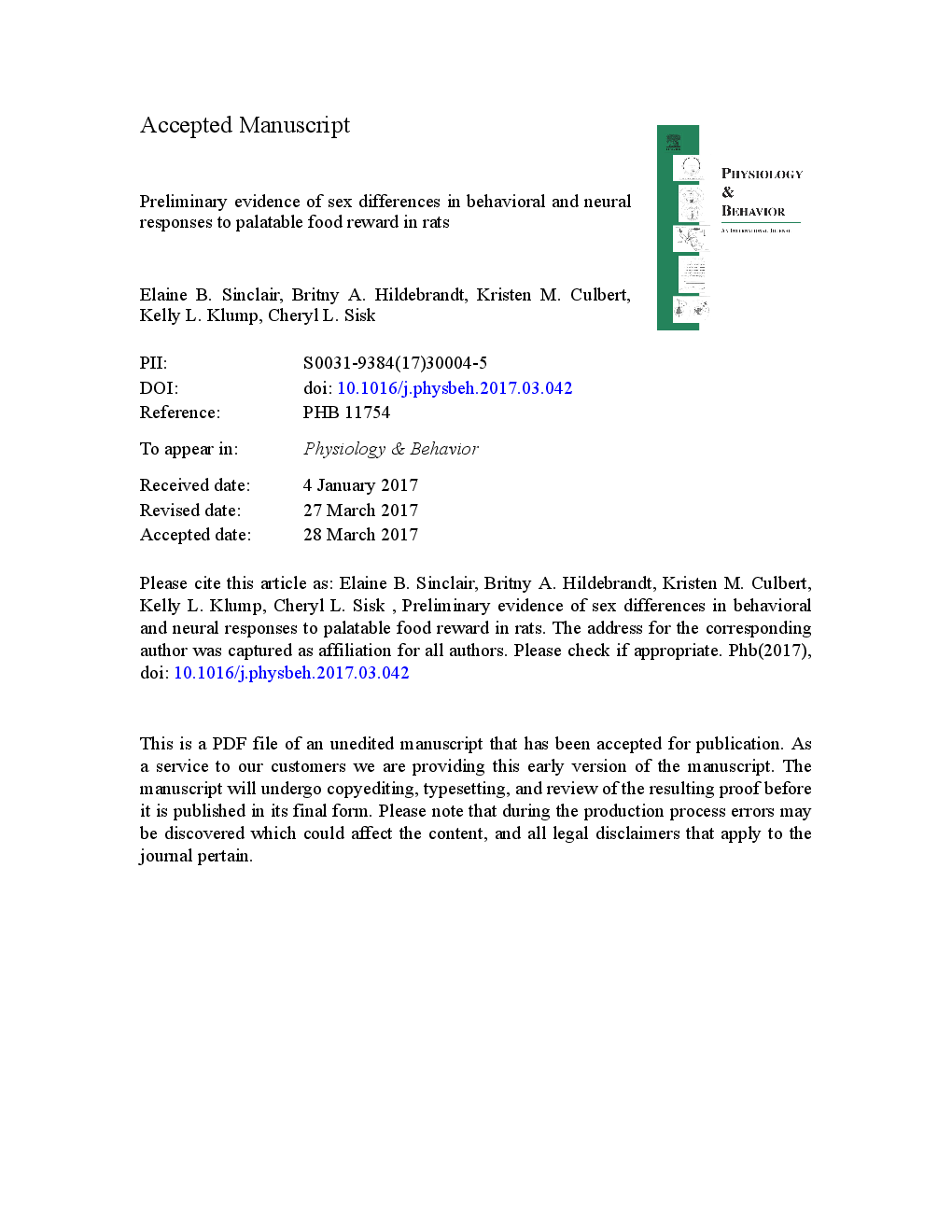ترجمه فارسی عنوان مقاله
شواهد اولیه نشان می دهد تفاوت های جنسیتی در پاسخ های رفتاری و عصبی به پاداش غذای خوشمزه در موش صحرایی
عنوان انگلیسی
Preliminary evidence of sex differences in behavioral and neural responses to palatable food reward in rats
| کد مقاله | سال انتشار | تعداد صفحات مقاله انگلیسی |
|---|---|---|
| 161438 | 2017 | 34 صفحه PDF |
منبع

Publisher : Elsevier - Science Direct (الزویر - ساینس دایرکت)
Journal : Physiology & Behavior, Volume 176, 1 July 2017, Pages 165-173

